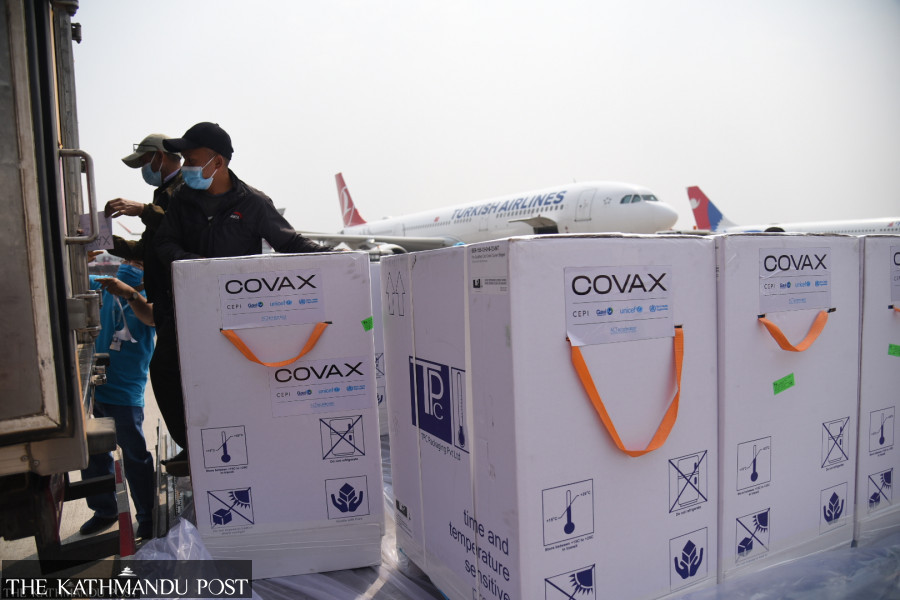Editorial
Continuing Covid danger
It is vital to keep in mind that over 12,000 Nepalis have already died of the virus, and thus stay vigilant.
That Covid-19 is still lurking around might come as a surprise to many. While that is understandable, given the sense of victory over the virus thanks to life-saving vaccines, we also cannot be complacent. Only last month, Nepal witnessed an uptick in the spread of the sub-lineages of the Omicron variant—KP.1, KP.2, KP.3 and KP.4. In April, hospitals were reportedly overflowing with patients of Covid, which was severe among the elderly and those with underlying health conditions. Moreover, the SARS-CoV-2 is still taking a toll on thousands of people around the world each month. These should be reasons enough for us not to dismiss Covid as a “seasonal flu”, as many mistakenly do. According to health experts worldwide, the virus has continued to evolve from Alpha and Delta to Omicron, and "is here to stay".
Vaccines are making their way to Nepal through several helping hands. This week, the COVAX facility supplied vaccines as a part of its 1.6 million doses promised to the country for the year. These vaccines are for the “high-priority groups” listed by the World Health Organisation and include women, immunocompromised children/adults, and those who are older and have chronic diseases. As per the officials, around 100,000 doses are to be given to immunocompromised children between 5-11 years and other people with chronic diseases like cancer and HIV, starting the last week of July.
Vaccines, as we all know, not only save us from immediate Covid infections but also long-term Covid with chronic symptoms. Countries around the world still fear the virus and are developing vaccines that are effective against the new variants. The National Institutes of Health in the United States, for example, has recently rolled out a trial of nasal Covid vaccine, aiming to fight emerging variants more effectively and enhance vaccine efficacy. Unfortunately, Nepal has not been able to utilise these life-saving doses. In the past, too, vaccines have come to Nepal but gone unused or expired, not only due to the government’s apathy in effectively administering them but also due to people not caring about the virus anymore. It is about time Nepal effectively launched a vaccination drive.
This time, the government should ensure every individual in the targeted vulnerable group is inoculated, preventing more deaths at the hands of the virus. Health experts and authorities should muster resources available to make people aware of the necessity of getting jabbed. It is important for all of us to keep in mind that over 12,000 Nepalis have already died of the virus, and thus remain vigilant.
With the mandates related to using masks, washing hands, maintaining distance, isolating oneself and getting tested now lifted, it is up to the individuals to take care of themselves and their families. Beyond Covid, these simple safety measures have also proved beneficial in controlling infectious diseases like seasonal flu, respiratory illnesses, diarrhoea, dysentery, cholera and typhoid. Monsoon is when hospitals and health care centres grapple with surges in communicable diseases. If still carried out, these preventive measures could control the spread of such diseases. We should never let our guard down. The cost of widespread spread of Covid or other dangerous pathogens is too big to be taken lightly.




 10.12°C Kathmandu
10.12°C Kathmandu













